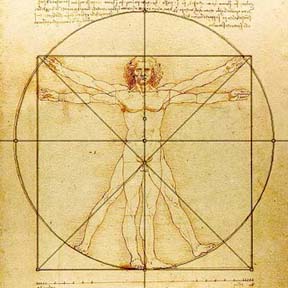July 2020
|
| |
 |
Bear Fruit
|
 |
Faith is not enough. Christians are also to be good; to
do good deeds; to bear good fruit (Matthew 7:17,
Colossians 1:10). But how do we do that?
Is it when we’ve helped someone – when we’ve
produced something good (Aristotle)? Well, yes, but what
about unintended results? Hormone replacement therapy
provided emotional stability, but later was found to
cause heart disease (Kathrine Sherif,
Hormone Therapy,
2013, Part IV.14). So was it good? Others therefore
think that good people obey good commands (Kant) –
regardless of the outcomes. But that can be done with
arrogance and disregard for others. So others add the
intention or motive to do good (Mill) – regardless of
your loyalty or the outcomes. But then good people may
never do anything good.
In the midst of these quandaries, Jesus says that
only a good tree can bear good fruit (Matthew 7:17).
Outcomes, loyalty and motives don’t get to the heart of
goodness. What does is faith in Christ – that’s what
makes you a good tree. That’s the point of Colossians
3:17 – “whatever you do, do everything in the name of
the Lord Jesus.” That gives both ethical freedom and
latitude (whatever you do), along with a strict moral
norm (in the name of Jesus).
Will pastors help us think about being good? Will
they even try? Can the clergy “arise again to a new,
joyous, and beneficial life, or will [the clergy] rot in
some putrid swamp?” (Ioann S. Belliustin,
Description of the Clergy in Rural Russia: The Memoir of
a Nineteenth-Century Priest,
trans. Gregory L. Freeze, Cornell University, 1985, p.
191).
‒Pastor
Marshal
|
|
| |
|
PRESIDENT'S REPORT....by
Cary Natiello
I hope you are all healthy, safe and keeping the faith!
At our June Zoom Council meeting we discussed
when and how we can resume indoor worship services. We
came up with a set of criteria to assess when we might
open again.
The criteria are listed below.
Each
of the criteria must be met in order for us to resume
indoor services…
1.
State and local governments allow indoor religious
gatherings of 50 people or less
2.
Policies and procedures that meet or exceed government
requirements and/or recommendations for indoor worship
services are approved by the council and in effect
3.
Newly diagnosed COVID-19 cases during the prior two
weeks in King County is minimal and declining [in other
words, we would need to see minimal and declining
COVID-19 cases for two weeks before we would consider
resuming indoor services]
4.
At least three weeks have passed since State and local
governments began allowing religious gatherings of 50
people or less, providing the council time to evaluate
if the number of COVID-19 cases in our community
continue to be minimal and declining
5.
The Council has a high degree of confidence that the
established policies and procedures can be followed and
that they will provide all the necessary precautions
needed to open
6.
A super majority, a minimum of 10 Council members, of
which Pastor Marshall is one, must vote in favor of
resuming indoor worship services
If any one of the criteria is not fully met, we
will not open.
Our goal is to ensure that when we open again, it
will be as safe as possible for our staff and
congregation.
As of the writing of this report, Pastor Marshall
said that none of our congregation has become infected
with COVID-19. Thanks be to God.
Unfortunately, many of the towns and cities
around the United States that have started opening have
seen an uptick in the number of COVID-19 cases. We will
continue to monitor the number of COVID-19 cases in King
County, but it seems unlikely that the spread of
COVID-19 will be under control anytime soon, and if it
is, how long it will be sustained. We all need to be
prepared for a prolonged suspension of our indoor church
services, even into next year.
The council will continue to discuss resuming
indoor services at each council meeting. The good news
is that Pastor Marshall has been providing us with
abbreviated online liturgies, plus he has figured
out a way for us to continue to receive the Lord’s
Supper at home.
Thanks be to God.
Also, Pastor Marshall is now conducting Zoom
Bible Study Thursday evenings at 7 p.m. If you are
interested in attending any of Pastor Marshall’s Zoom
Bible Studies, please let him know.
Our
mid-year congregational meeting is set for August 2.
Whether or not it will be remote will be determined at
the July Council meeting. A notification will be sent
out to everyone regarding that.
Our
church finances through May continue to be very strong
and at or better than budget.
Thanks be to God for all your continued support
of our church during these very challenging times.
God’s Peace and blessing to you all.

If you would like to distribute Holy Communion in your
home, call or email Pastor Marshall to make
arrangements.
|
|
| |
|
Pacific Lutheran University Censured
for illegitimately firing Dr. Jane L. Harty in 2018
after teaching there for 41 years
On June 22, 2020,
the
American Association of University Professors, the most
prestigious organization
of its kind, censured the administration of PLU for
illegitimately firing Dr. Jane L. Harty, Pastor
Marshall’s wife. The report against PLU “found that the
relatively minor nature of the misconduct in which [Dr.
Harty] was alleged to have engaged and the summary
nature of the administrative action taken against her
supported the inference that the real reasons for her
dismissal may have stemmed from the administration’s
long-standing displeasure with her advocacy for the
rights of faculty members on contingent appointments.”
For the full report see
https://www.aaup.org/news/pacific-lutheran-university-added-list-censured-administrations#.XvIn1-d7nct Pray that
this censure motivates PLU to rehire Dr. Harty and
correct their error. The Lord loves justice (Isaiah
61:8); would that PLU would too.
|
|
| |
|

Philippians
The Apostle Saint Paul
“Only let your manner of life
be worthy of the gospel of Christ”
(1:27)
by Pastor Marshall
Saint
Paul cared deeply about Philippians 1:27 – repeating its
message in Ephesians 4:1, Colossians 1:10 and 1
Thessalonians 2:12. This is because, as Martin Luther
warned, if Christians live lives based on their “own
pleasure and glory” (Luther’s
Works 30:248), then they will bring upon themselves
“God’s highest wrath, along with contempt and shame” (LW
79:147). Because so much is at stake, Christians have to
“increase little by little” every day in this regard, or
else all is lost (LW
34:157). This will not be easy. The task is daunting –
to live a life worthy of Jesus Christ. Even so, every
Christian has to know that “he does not live on earth
for himself or for his own sake, but his life and ways
on earth belong to the Lord Christ” (LW
79:146). In fact, “a Christian should have no higher or
greater concern than living in such a way that God’s
name is not dishonored” (LW
79:147).
Such a worthy life enables Christians to
“effectively commend the gospel” – even though it
requires “strenuous endeavor” (F. F. Bruce,
Philippians,
1989, p. 56). Some even go so far as to say that “the
conduct of the Christian life should have the merit of
the Gospel itself,” and that “if God is the center of
your life, no words are necessary” (Bonnie B. Thurston,
Philippians,
2009, p. 69). Be that as it may, this worthy life to
which Christians are called is not made up anew, based
on each Christian’s wishes, but has the Gospel of Jesus
as its “source for knowledge and discernment” (John
Reumann,
Philippians, 2008, p. 287). In addition, if
Christians “cease to act and simply react, then it is no
longer the gospel but the culture which gives the church
its identity.” Then the “two-edged sword” embedded in
the Gospel is blunted. Then “the destruction of the
wicked” wanes. But this can’t be if the reverse of the
Gospel (John 3:36) is to hold – that “turning on a light
creates shadows, a darkness of a different kind; that is
the unavoidable reality” of the Gospel (Fred Craddock,
Philippians,
1985, pp. 33–34).
Not all confrontations with evil are worthy,
however. “Some causes of suffering are to be neither
welcomed nor endured. Ill-advised suffering is no more
worthy of the gospel than shameful avoidance. When a
Christian faces suffering because of confessing Christ’s
name,” for instance, “it would be wrong to escape by
denying Christ. Yet very different causes having nothing
to do with one being a Christian (afflictions like rape,
slavery, or domestic violence) might expose believers to
cruelty, injustice, or abuse. Prudence and self-regard
in such cases are not contrary to the gospel. Failure to
avoid needless or unjust suffering can itself mean
disloyalty to Christ, as can failing to resist
injustice” (George Hunsinger,
Philippians,
2020, p. 29).
Christians have to stay focused. They can’t be
distracted by extraneous difficulties. In this call to
the worthy life, they are being urged “to devote
themselves to virtue,” pure and simple. And when they
do, “nothing grievous will befall” them (John
Chrysostom,
Homilies on Philippians, trans. P. Allen, 2013, pp.
85, 87). “Worthy,” after all, means “firm,… showing
backbone, confessing – whereby the gospel is conceived
as the ground on which [Christians] are to maintain
their stand, from which they are not to let themselves
be forced away” (Karl Barth,
Epistle to the
Philippians: 40th Anniversary Edition, trans. J. W.
Leitch, 2002, p. 46). And this is necessary, as Luther
knew, because most Christians “among us are heathen
under the Christian name” (LW
78:181). Trying to reverse this with a worthy Christian
life won’t be easy because “what the devil wants makes
progress…. [and what] God wants… makes progress nowhere
and faces innumerable obstacles” (LW
78:96). Yet, as Luther again knew, it is precisely when
“all things seem hopeless [that]… the help of God
begins” (LW
7:100).
|
|
| |
|

The Body
“I am fearfully and wonderfully made.”
(Psalm 139:14)
“You don’t know
how the body is formed in the mother’s womb.”
(Ecclesiastes 11:5)
Ears
“Hearing is [a] seriously underrated miracle. Imagine
being given three tiny bones, some wisps of muscle and
ligament, a delicate membrane, and some nerve cells, and
from them trying to fashion device that can capture with
more or less perfect fidelity the complete panoply of
auditory experience – intimate whispers, the lushness of
symphonies, the soothing patter of rain on leaves, the
drip of a tap in another room…. Two-thirds of Europeans
have free-hanging earlobes and one-third have attached
earlobes. Whether tethered or flapping, the earlobes
make no difference to your hearing or indeed anything
else…. From the quietest detectable sound to the loudest
is a range of about a million million times of
amplitude.”
[Bill Bryson, The
Body:
A Guide to Occupants
(2019) pp. 84, 85, 86.]
|
|
| |
|

Luther on Samson
By Pastor Marshall
After Samson’s
retaliation against the Philistines for stealing his
Philistine wife – the cycle of violence ramps up (R. D.
Branson, Judges,
2009, p. 137). The Philistines kill Samson’s wife, and
Samson strikes back with “a great slaughter” (Judges
15:8). “The only thing that matters is reprisal and
counter reprisal” (T. C. Butler,
Judges, 2009,
p. 342) – leaving some to compare Samson to “Breaking Bad’s Walter White [and] the violence of hyper-masculinity”
(The Catholic
Biblical Quarterly, January 2020, p. 151). Samson’s
own people reject him for this. In his defense Samson
says with “simple, stubborn logic” (D. Grossman,
Lion’s Honey: The
Myth of Samson, 2005, p. 91): “As they did to me, so
have I done to them” (Judges 15:11). Martin Luther notes
that this conflicts with Proverbs 20:22, “Do not say, I
will repay him his evil.” But he also says that Samson
“did not do so in order to avenge himself,… but to serve
others and to punish the Philistines” (Luther’s
Works 45:104). From this we learn the lesson of
worthwhile punishment.
|
|
| |
|
1 John 3.18
Monthly Home Bible Study,
July 2020, Number 329
The Reverend Ronald F. Marshall
Along with our other regular study of Scripture, let us
join as a congregation in this home study. We will
study alone
then talk informally about the assigned verses together
as we have opportunity. In this way we can “gather
together
around the Word” even though physically we will not be
getting together (Acts 13.44). (This study uses the RSV
translation.)
We need to support each other in this difficult
project. In 1851 Kierkegaard wrote that the Bible is “an
extremely dangerous book.... [because] it is an
imperious book... – it takes the whole man and may
suddenly and radically change... life on a prodigious
scale” (For
Self-Examination). And in 1967 Thomas Merton wrote
that “we all instinctively know that it is dangerous to
become involved in the Bible” (Opening
the Bible). Indeed this word “kills” us (Hosea 6.5)
because we are “a rebellious people” (Isaiah 30.9)! As
Lutherans, however, we are still to “abide in the womb
of the Word” (Luther's
Works 17.93) by constantly “ruminating on the Word”
(LW 30.219)
so that we may “become like the Word” (LW
29.155) by thinking “in the way Scripture does” (LW
25.261). Before you study then, pray: “Blessed Lord, who
caused all Holy Scriptures to be written for our
learning: Grant us so to hear them, read, mark, learn
and inwardly digest them, that we may embrace and ever
hold fast the blessed hope of everlasting life, which
you have given us in Our Savior Jesus Christ. Amen”
(quoted in R. F. Marshall,
Making A New
World: How Lutherans Read the Bible, 2003, p. 12).
And don’t give up, for as Luther said, we “have in
Scripture enough to study for all eternity” (LW
75:422)!
Week I.
Read 1 John 3.18 noting the contrast between
word and
deed. Even though deeds are favored over words, can
words ever matter much? Check out Proverbs 25.11 noting
the words fitly,
gold and
silver. What
are fitly spoken words and why do they matter? On this
read Isaiah 50.4 noting the words
sustain and
weary. Why does this matter? Note Elijah in 1 Kings
19.1–4 about wanting to die. Because we can sink into
despair, offering comfort can save lives. Fitly spoken
words can do this. Does that make you great if you can
help in this way? Check out Matthew 10.19–20 noting the
words say,
given,
Spirit and
through. Are
we only servants, then, and not valued therapists? On
this read Luke 17.10 noting the phrase
unworthy servants.
Read also 2 Corinthians 3.5 noting the line
our
competence… not…
coming from us. Where does that leave us when we
help somebody by saying the right things? Check out 1
Corinthians 10.31 noting the line
do all to the
glory of God. Read also Colossians 3.17 noting the
similar line do
everything in the name of the Lord Jesus. Does that
settle how you should think about yourself when you help
someone?
Week II.
Read again 1 John 3.18 noting the same two words
word and
deed. Is
there any other value in speaking even though deeds
surpass words? Read Romans 10.17 noting the words
faith,
heard and
preaching.
How does this work? Note Acts 2.37 and the line
they were cut to
the heart. Words preached can do this! That’s
something like words getting under your skin, as we say.
How do they do that? Read James 1.21 and the line
the implanted
word which is able to save your souls. How is that
word implanted in us? Check out Isaiah 55.11 and the
line my word…
goes forth from my mouth; it shall not return to me
empty. So God’s words have force – they aren’t inert
like printed letters on a page. For an example of this,
see Acts 9.1–20 noting the words
light,
flashed,
fell,
eyes,
filled,
scales and
proclaimed.
Are you convinced? If so, why?
Week III.
Reread 1 John 3.18 noting the word
deed. Why are
deeds more important than words? On this read 1
Corinthians 4.20 noting the line
the kingdom of
God does not consist in talk but in power. Why are
deeds more powerful than talking? Go to John 13.35
noting how
knowledge of God comes from seeing believers
love one
another. How does love do this? Read Proverbs 25.21–22
noting how your hardened enemy is softened – melted by
coals of fire on
his head – when you love him by sharing food and
drink. How does that work? Read Philemon 1.7 noting how
love can
refresh with
the joy and
comfort it
brings. Read also 1 Peter 4.8 about how
love covers a
multitude of sins. How so? By being forgiving and
gracious – and helpful when unexpected. This can draw
people in. Does it always work? On this read Matthew
26.46–27.5 noting the word
friend at the
beginning and
hanged at the end. Jesus didn’t attack Judas for
betraying him, and still Judas killed himself. The love
of Jesus couldn’t save Judas. Do you agree?
Week IV.
Read 1 John 3.18 one last time noting again the word
deed. What
other deeds move us in ways that words can’t? On this
read Matthew 15.21–28 noting how the woman was ready to
eat crumbs with the dogs from under the master’s table.
That act moved Jesus to exclaim –
O woman, great is
your faith! This same humility is in Luke 18.9–14
which ends in praise –
he who humbles
himself will be exalted. Read also John 6.1–14
noting the lad’s
generosity – ending up with five thousand eating
as much as they
wanted. The miracle could have been opening the
hearts of stingy people so that they too shared what
they had, instead of physically multiplying the five
barley loaves and two fishes first donated by the boy.
Another case is in Ruth 2.8–13 where Ruth’s devotion to
Naomi moves Boaz to befriend Ruth in Bethlehem. Read
also about David’s love for Jonathan in 2 Samuel 1.1–27
upon hearing of Jonathan’s death. Do these cases help
explain why we are to match our love with God’s in 1
John 4.19? How so?
|
|
| |
|
 PARISH PRAYERS
PARISH PRAYERS

Remember in prayer before God those whom He has made
your
brothers and sisters through baptism.
Melissa Baker, Melanie Johnson,
Larraine King, Eve Young, Pete Morrison, Todd & Covi
Tuomi Family, Sam & Nancy Lawson, Bob & Barbara Schorn,
Connor Bisticas, Eileen & Dave Nestoss, Kyra Stromberg,
Tabitha Anderson, Diana Walker, The Rev. Albin
Fogelquist, The Rev. Howard Fosser, The Rev. Kari Reiten,
The Rev. Dave Monson, The Rev. Paul Smith, The Rev. Dan
Peterson, The Rev. Rick Reynolds, Sheila Feichtner,
Yuriko Nishimura, Leslie Hicks, Eric Baxter, Mary Lou &
Paul Jensen, Hillary Thoren, Trevor Schmitt, Lesa
Christensen, Maggie & Glenn Willis, Evelyn, Emily &
Gordon Wilhelm, Karen Berg, Bjorg Hestevold, Wayne
Korsmo, Garrison Radcliffe, Antonio Ortez,
Marv Morris, The Jill & Dave West
Family, Noel Curtis, Randy Vater,
Garrett
Metzler, Doreen Phillips, Will Forrester, Richard
Patishnock, Jeff Hancock, John Paulson, Yao Chu Chang,
Mary Cardona.
Pray for our
professional Health Care Providers:
Gina Allen,
Janine Douglass, David Juhl, Dana Kahn, Dean Riskedahl
and all
those suffering from the coronavirus pandemic. Also,
pray for unbelievers, the addicted, the sexually abused,
harassed, and unemployed.
Pray for the shut-ins that the light of Christ may give
them joy: Bob &
Mona Ayer, Bob & Barbara Schorn, Joan Olson, Doris
Prescott, C. J. Christian, Dorothy Ryder, Lillian
Schneider, Crystal Tudor, Nora Vanhala, Martin Nygaard,
Gregg & Jeannine Lingle, Anelma Meeks.
|
|
Treasury of Prayer
God of wisdom, help me weigh everything I say carefully.
Help me mean what I say and say what I mean and listen
to others attentively. May I be thoughtful in reply and
slow to anger; encourage faith, praise compassion and,
when needed, pinpoint sin. In the name of Jesus I pray.
Amen.
[For All the
Saints IV:178–79, altered]
|
|
| |
|

“The
truth is, here we are, it’s
middle of June 2020, and none of us know what the best
decision is, we’re
all learning on the fly… none of us have been through a
pandemic before.
We don’t know what the right decision is, but we
have a sense as to what the wrong decision is.”
Dr. Shmuel Shoham
associate professor of medicine at Johns Hopkins
University School of Medicine.
|
|
|